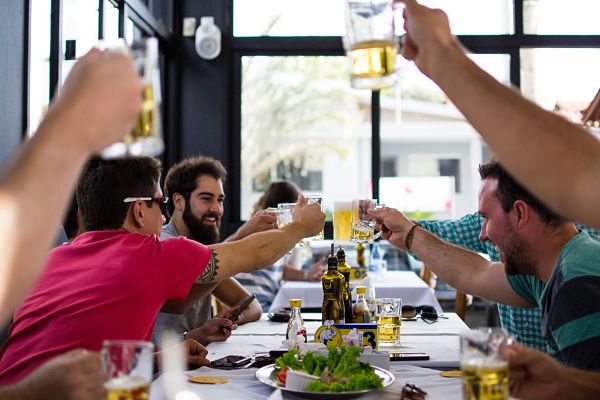Culture Shock in Brazil: A Foreigner’s Guide to Doing Business
Big, beautiful Brazil!
For many foreigners doing business in the country for the first time, it can be a bit overwhelming!
If you visit Brazil with certain expectations and preconceptions, be prepared for a shock!
The culture in Brazil is very unique; if you don’t understand the people and their way of life, it can be easy to fail.
So, in this blog, we’re going to look at 6 common aspects of Brazil that cause culture shock for foreigners doing business in the country.
Don't miss out!
At the END of the PAGE you'll find a link to a FREE guide on Brazilian CULTURE, ETIQUETTE and BUSINESS practices.
Diversity in Brazil
When we talk about Brazil, remember that not only is this country the size of a continent, but it is also one of the most ethnically and culturally diverse countries on the planet.
Brazilian diversity is deeply rooted in the ethnic origins of the people, (primarily European, African and Amerindians).
The cultures, religions and customs of these ethnic groups have assimilated over time to create the rich tapestry making up Brazilian culture.
It’s important to note, that like any other country, Brazil also has affluent and disenfranchised areas. For example, individuals may live in rich areas, poor areas or even slums and ghettos.
These economic experiences further shape the many subcultures which make up Brazilian culture.
With this in mind, be aware that we’re making broad brushstroke statements when talking about culture shock in Brazil.

Photo by Vinicius "amnx" Amano on Unsplash
Did you know the yellow on the Brazilian flag represents gold? The green represents Brazil's natural splendour!
Written in Portuguese is “Ordem e Progresso” which means “Order and Progress” in English.
“Where are the English Speakers?”
Although English is commonly spoken in the business world and in the big cities such as Rio de Janeiro and San Paulo, very few Brazilians speak English outside of this.
As such, it’s important to learn at least basic Brazilian Portuguese to get around.
A frustration vented by many foreigners, however, is that Brazilians tend to speak quite quickly and that they have to be reminded to slow down.
It’s also fair to say that pronunciation is key but that it’s not always obvious how to pronounce a word.
This in itself can be a challenge and result in miscommunications!
“Whoa! The traffic!”
A common culture shock for foreigners from countries where traffic rules are closely followed is that the roads in Brazil can seem quite dangerous.
Clearly, not all drivers drive dangerously, but it’s not uncommon for expats and visiting business people to report feeling unsafe when using the roads.
For example, there’s a sense that Brazilians don’t always follow the traffic rules, that speed limits are perceived as suggestions only and that cars are routinely parked on sidewalks or in front of driveways.
In some areas, crossing roads can be challenging as pedestrians don’t have right of way which can make crossing a hazardous exercise.
“When are they going to turn up?”
The fluid approach to time takes a lot of getting used to for foreigners from time-sensitive cultures.
Brazilians tend to take a fairly flexible approach with time.
They don’t necessarily see it as a tangible construct in the same way that people from countries such as the US, UK, or Germany might.
They also tend to prioritise relationships over time. As such, if someone needs something, then this need might take precedence over being on time for a pre-arranged meeting.
In a business setting, it’s fair to say that if a meeting is booked for 09:00 am, attendees might well show up at 09:15 or even later.

Photo by Fábio Alves on Unsplash
Brazilians are a very relationship-orientated people. If you really want to make an impact, you have to invest time in building relationships, which means plenty of eating and drinking!
Find out more in this blog about Brazilian values and how they impact business.
“What are they doing stood so close to me?”
Another common culture shock is the lack of physical space.
Brazilians are very comfortable with being tactile around each other.
Although people who don’t know each other well might just exchange a handshake, it’s fair to say that hugs, kisses and pats on the back are a common greetings in the Brazilian workplace.
Brazilians also tend to stand fairly close to each other when talking or walking together.
The concept of physical space, which is so common in Western business culture, is certainly not part of Brazilian business culture.
“Will you stop with the personal questions!?”
The lack of proxemics lends itself well to the fact that Brazilians tend to be incredibly relationship-focused and friendly.
In fact, relationships are critical to getting things done in the business world.
Jumping straight into business isn’t necessarily the best way to do business in Brazil.
For example, Brazilians negotiate with people, they don’t negotiate with organisations.
This can be a significant cultural change for expats relocating from Western business cultures as they need to learn to nurture and build relationships before business can be done.
“Why do they say ‘yes’ but don’t follow through?”
One of the biggest culture shocks for foreigners is the ambiguous meaning of the word ‘yes’.
In Western cultures, ‘yes’ means ‘yes’. However, in Brazil, it can mean yes, maybe or even no.
With the value placed on relationships, Brazilians may well say yes to protect feelings, even if they actually mean no.
Although Brazilians tend to be able to ‘read between the lines’ to decode the true intent behind the word, many Westerners learn about the ambiguity of this word the hard way!
Expert Training on Brazilian Business Culture
These are just a few examples of the challenges foreigners face when doing business in Brazil.
To learn more about Brazilian business culture, why not invest in one of our Brazil Cultural Training Webinars?
These are delivered by Brazil experts and are a great way of developing the skills and understanding needed to make a positive impression in Brazil, build productive relationships and to deliver successful business outcomes.
Blog image by Raphael Nogueira on Unsplash
By accepting you will be accessing a service provided by a third-party external to https://www.commisceo-global.com/

 +44 0330 027 0207 or +1 (818) 532-6908
+44 0330 027 0207 or +1 (818) 532-6908

